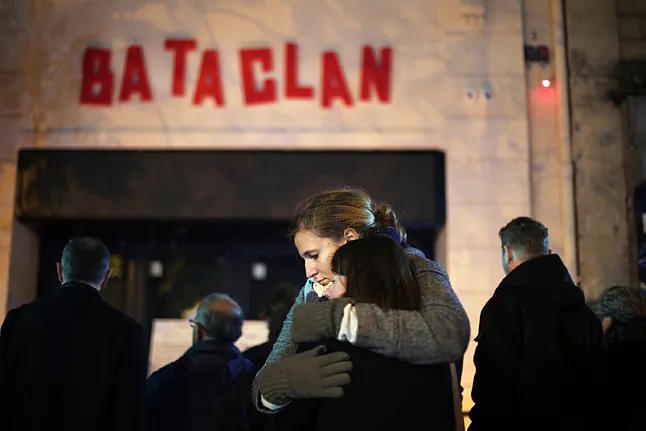Salah Abdeslam, the terrorist sentenced to life imprisonment for his involvement in the attacks on November 13, 2015, in Paris and Saint-Denis, which resulted in 132 deaths and over 400 injuries, has sparked a bitter controversy in France by requesting to "speak with the victims" and showing willingness to participate in a "restorative justice" process.
Abdeslam, 36, born in Brussels to Moroccan parents, acted as a driver for the attackers at the Bataclan concert hall and the three suicide bombers near the Stade de France. His brother, Brahim Abdeslam, blew himself up in the attack on Boulevard Voltaire. His ex-girlfriend, Maëva B. Lundi, was recently arrested along with another woman and a man, accused of planning attacks on bars and concert halls, coinciding with the tenth anniversary of the attacks.
The Director-General of Internal Security, Céline Berthon, strongly criticized the unusual announcement made by Abdeslam through his lawyer, Olivia Ronen. "We cannot treat terrorism as a common crime," Berthon emphasized to Franceinfo. "Its goal is to sow terror, attack victims, and harm all of French society".
The senior official stated that the convicted individual "remains radicalized and convinced of radical ideology," as evidenced by information seized from a USB device allegedly passed to him by his ex-girlfriend during a visit to Vendin-le-Vieil prison, where he is serving his sentence.
"We have evidence pointing in the opposite direction," countered lawyer Olivia Ronen, explaining Abdeslam's alleged transformation behind bars: "He is someone trying to access education and who also apologized to the civil parties during the trial, something quite unusual (...) He could explain the situation and open a door to the victims, if they wish."
Arthur Dénouveaux, president of the Life for Paris association and a survivor of the Bataclan massacre where 90 people died, initially showed interest in the request made by Abdeslam's lawyer. "Regarding restorative justice, several victims of the attacks would be interested in it", Dénouveaux wrote on his X account. "This could lead, as in Spain or Italy, to meetings in prison with his client."
The director of Charlie Hebdo, Laurent Sourisseau (better known as Riss), a survivor of the attack on the satirical magazine that left 12 dead in January 2015, has spoken out against Salah Abdeslam's controversial request.
"Restorative justice exists for other types of crimes, such as juvenile delinquency and, in general terms, common crime," Sourisseau stated. "By making this request, Abdeslam gives the impression that it is a crime like any other, but it is not. This is a very perverse attempt to trivialize terrorism."
"Abdeslam is a pure and radical Islamist, and will remain so for the rest of his life," warned the director of Charlie Hebdo, pointing out that the terrorist's proposal could also be seen as an affront to the victims: "If they refuse, they may be considered 'closed-minded' for refusing to dialogue, while he is."
The concept of "restorative justice," alongside criminal justice, brings together victims and perpetrators voluntarily and in a structured manner to promote dialogue, understanding, and, in some cases, reconciliation. For a decade, the principle has been effectively applied to cases of common crime, but not to terrorism cases, let alone a multiple attack that stands as the deadliest terrorist massacre in France in this century, claimed by the Islamic State.
The recent arrest of his ex-girlfriend Maëba B. Lundi, along with a 17-year-old minor and her new 20-year-old partner, has raised concerns again about the case of Salah Abdeslam, who was on the run for over 120 days before being arrested for his involvement in the 13N attacks. The three detainees are accused of planning assaults on bars and concert halls with assault weapons and explosives. The arrests have put the French police on high alert ahead of the commemorations planned for this Thursday. Interior Minister Laurent Núñez sent a telegram to police stations last week requesting increased surveillance at bars and concert halls.
Meanwhile, President Emmanuel Macron will preside over tributes to the victims with a series of events on 13N at the locations of the attacks that spread terror in the French capital: from the Stade de France to the Bataclan hall, passing through Le Carillon, Petit Cambodge, Comptoir Voltaire, and La Belle Équipe. The day will conclude at six in the evening with the inauguration of the November 13 Garden next to Paris City Hall.
